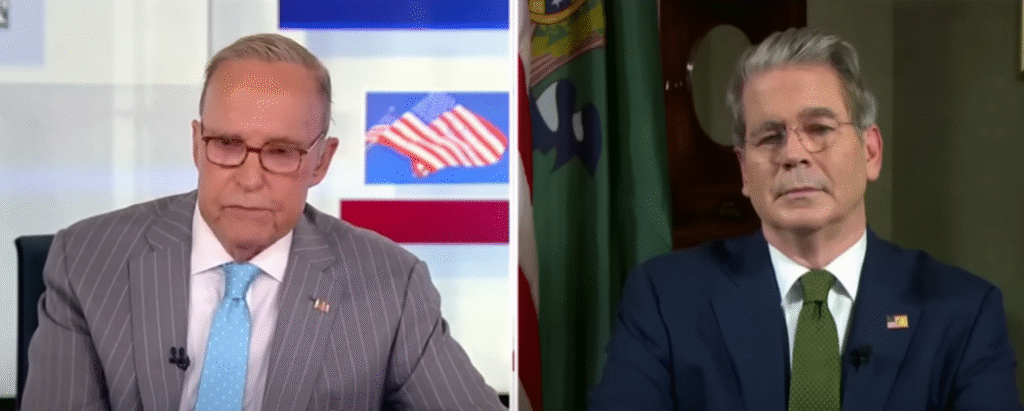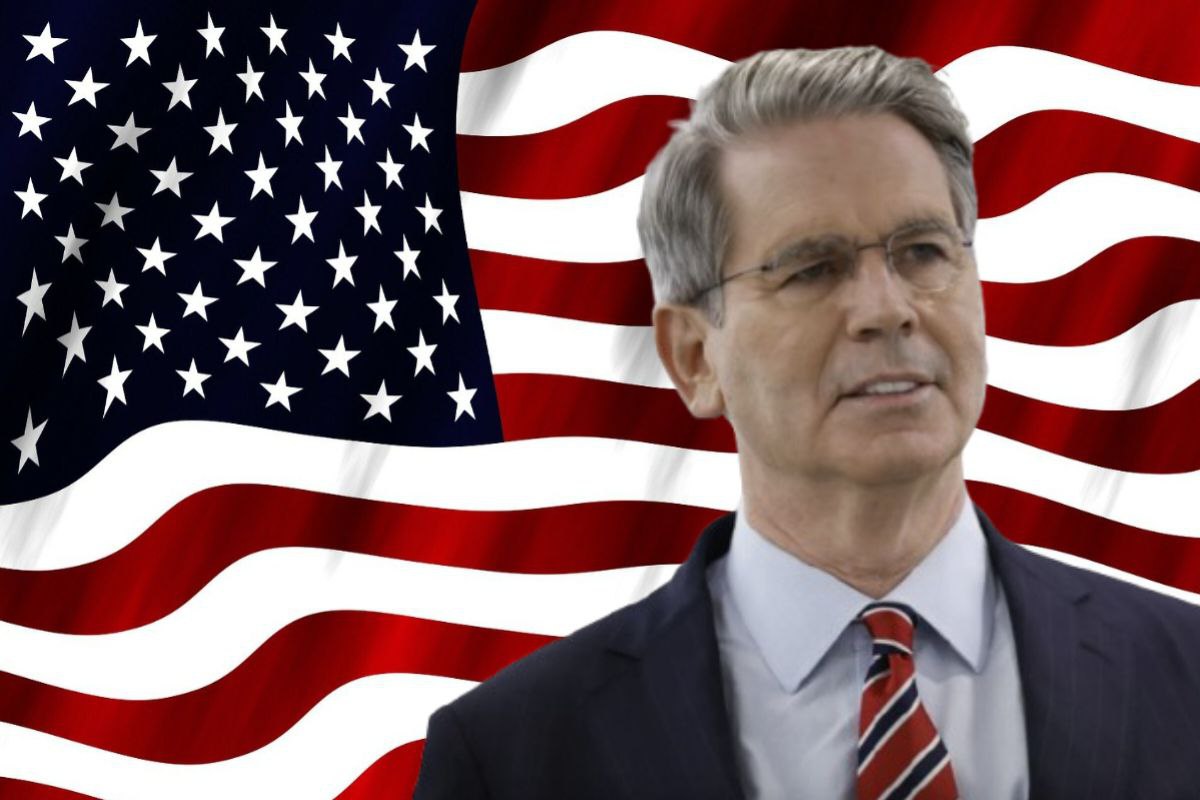In a detailed interview, U.S. Treasury Secretary Scott Bessent emphasized the urgent need for a comprehensive internal review of the Federal Reserve, citing its massive financial losses, bloated staffing, and costly operations. He warned that the Fed’s expanding role risks undermining its monetary policy independence. Bessent also highlighted President Trump’s trade strategy successes, including deals with Indonesia and the Philippines, and noted the lack of global retaliation as proof of America’s rising leverage. Looking ahead, he discussed plans to press China on economic rebalancing and its ties to Russian oil, signaling a strategic shift in U.S. economic diplomacy.
Bessent says Due to the FED, U.S is Losing $100 Billion Annually
In a wide-ranging Interview, U.S. Treasury Secretary Scott Bessent offered candid insights into the current state of the Federal Reserve, its financial troubles, and America’s growing trade leverage under President Trump’s administration. Speaking with host Larry Kudlow, Secretary Bessent addressed the critical need for a top-to-bottom review of the Federal Reserve’s operations, beyond its traditional monetary policy mandate.
Bessent did not mince words when discussing the Federal Reserve’s worsening financial situation. The Fed, he pointed out, is currently losing nearly $100 billion annually—primarily due to a mismatch between its bond portfolio and prevailing short-term interest rates. He questioned the timing of major building renovations at the Fed while it is deep in the red. “Was it a good idea to start the renovations for an enterprise that’s losing $100 billion a year?” he asked rhetorically.
The Treasury Secretary also likened the Fed to a casino that somehow loses money—an anomaly, he suggested, given its money-printing powers. “If I had the printing press, I think I could make money,” he quipped.
Bessent emphasized that the Federal Reserve’s ballooning size and activities are threatening the independence of its core function—monetary policy. He warned that the Fed’s growing involvement in other operations invites criticism and risks the credibility of its monetary role. He noted the Fed’s staffing levels have surged by 300% in recent years and said its expenses are spiraling out of control, exacerbated by inflation during the Biden administration.
Call for Internal Review and Accountability
While the Kudlow floated the idea of a congressional commission to investigate the Fed’s actions, Bessent leaned toward an internal solution. Citing the Bank of England’s post-inflation self-assessment model, he proposed the Fed initiate its own internal investigation before involving Congress. He expressed concern that Congressional involvement could “create more problems than it’s going to cure.”
Bessent also criticized the lack of oversight on self-funded agencies like the Federal Reserve and the Consumer Financial Protection Bureau (CFPB), both of which operate with significant independence from congressional budgetary control. In contrast, he noted that the Treasury Department itself is subject to strict budget oversight and even shared a personal anecdote about bringing in his own tablecloth from home to keep costs down.
Trump’s Trade Doctrine Sees Global Success
Shifting the conversation to trade, Secretary Bessent highlighted a string of victories the Trump administration has secured, particularly in negotiations with Southeast Asian nations like Indonesia and the Philippines. These deals are opening new markets for American farmers and manufacturers, including rice and automobiles.
Bessent emphasized three key reasons for the success:
- Global Demand for the U.S. Market: According to Bessent, “The entire world wants to trade with the United States.” The U.S. consumer and producer markets are the deepest and most influential globally, and countries are willing to reduce trade barriers to access them.
- Tough, Effective Negotiations: Countries like Indonesia came forward with strong offers, including slashing over 1,000 tariff lines. The Secretary blamed previous U.S. administrations for letting these countries enjoy lopsided advantages in past trade arrangements.
- Leverage of Secondary Tariffs: Bessent mentioned increasing Senate support for using secondary tariffs as a foreign policy enforcement tool. He highlighted the emerging consensus to impose secondary tariffs on any country that purchases Russian oil—a move that could tighten the economic squeeze on Russia and potentially reshape global trade alignments.
No Retaliation: A Remarkable Outcome
Kudlow and Bessent agreed that what’s perhaps most remarkable is the lack of trade retaliation from international partners despite the U.S. imposing tougher terms. “The policy is working,” Kudlow noted. Bessent called this a “new game” in global trade, where America is regaining control without inciting trade wars.

Tough Talks Ahead with China
Looking ahead, Bessent is set to meet Chinese officials in Stockholm, Sweden. While acknowledging that China is a “tough nut to crack,” he believes the U.S. is currently in a strong position. After a brief tit-for-tat earlier in the year, tariffs have stabilized, with the U.S. imposing a 30% tariff (including 20% carried over from Trump’s first term), and China maintaining a 10% tariff in return.
Bessent identified China’s internal economic instability as the bigger issue. With 30% of global manufacturing concentrated in China, he warned that such imbalance is unsustainable. The country’s real estate crisis and manufacturing slump signal the need for domestic rebalancing. “They need to create a consumer economy,” he stated.
He also mentioned pressing China on its purchases of sanctioned Russian oil. If China were to pause these purchases for just three to six months, it could significantly weaken Russia’s war capacity and ease broader geopolitical tensions, including negotiations with Iran.
Scott Bessent’s interview sheds light on the Trump administration’s dual strategy of internal reform and global assertiveness. At home, he is calling for fiscal discipline and structural reform at the Federal Reserve, while abroad he is executing a robust trade strategy that is reshaping global commerce—without triggering backlash. Whether dealing with domestic policy or foreign rivals like China, Bessent is promoting a vision of strategic clarity and economic strength
Disclaimer:
This article is for informational purposes only. It reflects commentary from public interviews and should not be considered financial or investment advice.

